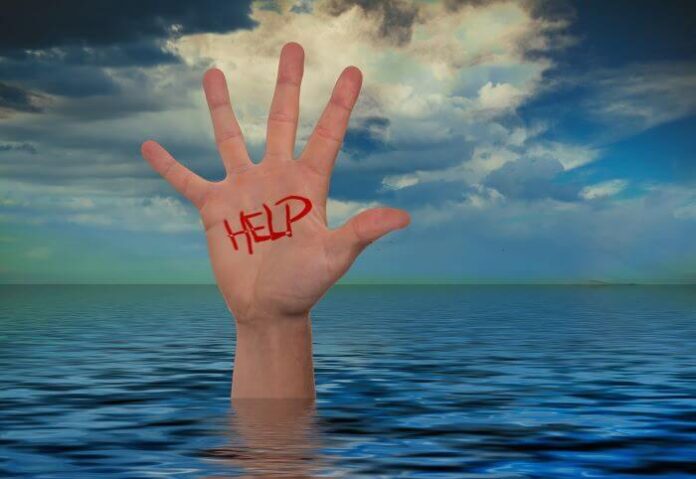If you’re submerged in debt, the safe harbor of financial security and contentment seems out of reach. You’re thrashing about, flailing, unsure what to do.
If it’s any consolation, you are not alone in this situation. There are plenty of companies in the same show as yours. In fact, the average American has more than $92,727 in consumer debt, and 78 percent of U.S. residents live paycheck to paycheck.
However, the good news is that there are steps you can take to get back on solid ground if you are ready to stick with them. With that being said, here’s what to do if you’re drowning in debt.
#1: Establish a Budget
Yes, the “B” word. Perhaps you’ve been resisting, but you simply must craft a budget so that you can gauge how much you’re spending and what you’re spending on. You must be able to track this to figure out how you got into your situation so that you’re not in it again.
#2: Tighten Your Belt
Now that you’ve put together a budget, you can better see where you can cut back. Now is the time to ease up on those extras. Cut out restaurants, for example, and get rid of all those subscriptions you don’t need, especially those you don’t use.
Those few dollars monthly can add up. The next time you get your bank statement, check for those automatic withdrawals for online publications and the like and put a stop to them, at least for now.
And those fancy (and pricey) coffees you get on the way to work each morning? You can’t afford them right now. Just as you should stick to your grocery list when shopping and use every coupon you can find. It’s also a good idea to take inventory of any goods around the house that you can sell.
#3: Cease Investing for Now
You take pride in your investments, and you should. However, when you’re drowning in debt, now is not the time to save for your future. You need every dime for your debts. Another idea is to hustle up a modest emergency fund of $1,000 so that you have a bit of security as you work to get out of debt.
#4: Don’t Create More Debt
This may seem like a no-brainer, but now is not the time to take on new debt. This means you cannot use your plastic right now. No, you can’t charge a thing. If you have an unexpected expense such as a car repair bill, that’s where your emergency fund comes in.
And when you’re finally out of debt, you will have created better spending habits. If you’re already impossibly behind on credit card payments, you can find help at www.freedomdebtrelief.com.
#5: Produce More Income
Whether it’s a side gig or a second job, you must figure out how you can bring in more money. We get it: you’re working hard as it is. But you’ve got to increase your income so that you can begin to at least see the dry ground. Seas are choppy right now, but they won’t be forever. Remember that it took a while to get into the condition you’re in, so you’ll need to stick it out.
#6: Go the Snowball Route
Now you can begin tackling your debt using what’s called the “snowball” strategy. That method entails listing your debts from smallest to largest and making minimum payments on all except the debt with the smallest amount due.
Throw everything you have at that debt. Once it’s cleared, take the same approach with the next-biggest debt, and rinse and repeat until your debts are erased.
#7: Don’t Compare Yourself with Others
At times like these, social media can be the worst. All you see, it seems, are posts about exotic vacations and the like. Scroll by. You can consider that stuff when you are debt free. And besides, you don’t know the financial situation of those doing the posting. They may have even put their whole vacation on credit cards – and will be sorry later.
If you’re drowning in debt, you must act. While you may feel like throwing in the proverbial towel, you simply must get in gear and go after your debt – and your peace of mind. If you’re patient and determined, you’ll be fine. We believe this post has provided you with enough tips on how to be debt-free, even when you are drowning in debt.







